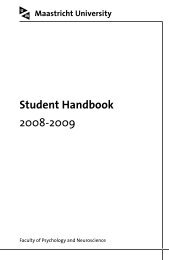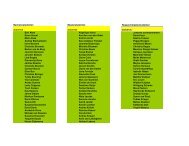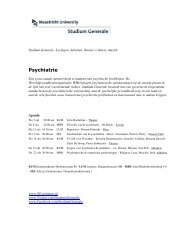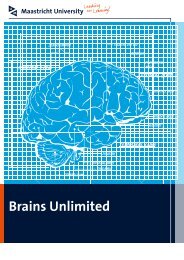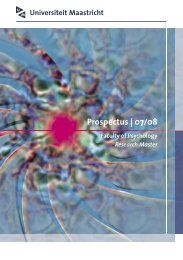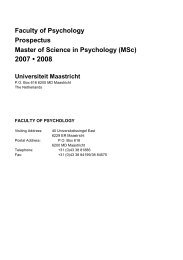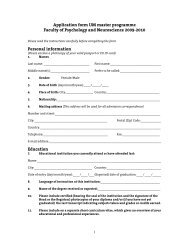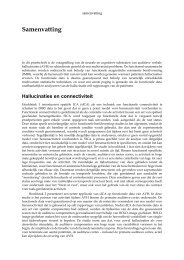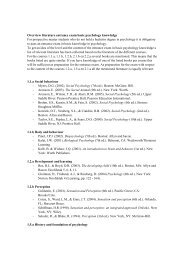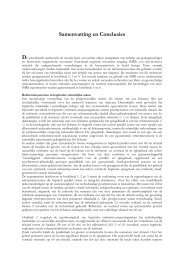Prospectus | 08/09 - Psychology and Neuroscience - Maastricht ...
Prospectus | 08/09 - Psychology and Neuroscience - Maastricht ...
Prospectus | 08/09 - Psychology and Neuroscience - Maastricht ...
You also want an ePaper? Increase the reach of your titles
YUMPU automatically turns print PDFs into web optimized ePapers that Google loves.
Chapter 3 - Specialization Fundamental <strong>Neuroscience</strong><br />
Form of Assessment<br />
Short report (2-4 pages) in abbreviated article form.<br />
| 522FN Data management– 1 credit<br />
Coordinator: Arjan Blokl<strong>and</strong>, Neuropsychology & Psychopharmacology (FPN), Phone 38 81903,<br />
40 Universiteitssingel East, Room 2.731, E-mail: a.blokl<strong>and</strong>@psychology.unimaas.nl<br />
Description of the Course<br />
The aim of this skills training is to acquire basis skills in data management. After doing<br />
your scientific research, data have to be prepared for data analysis. Usually, the format<br />
of the data acquisition software does not match the requirements of sophisticated<br />
statistical software packages (e.g., SPSS or SAS). In this skills training, students will be<br />
familiarized with the software package Excel. This program has many features that<br />
can be very helpful to overcome time-consuming formatting of databases. First, an<br />
introduction of the basic features of Excel will be presented. Being familiar with these<br />
basic aspects is necessary to underst<strong>and</strong> copying of values <strong>and</strong> formulas (relative<br />
or absolute). Also, Excel enables you to make various types of graphs, which can be<br />
very helpful for quickly visualizing your data. A fourth aspect that will be dealt with<br />
is pivot tables, a very helpful tool to organise your data in any manner you find most<br />
suitable for your further data h<strong>and</strong>ling. A final option that will be dealt with is the<br />
use of macros. These are especially helpful when repetitious changes in layout or<br />
recalculations have to be made.<br />
59<br />
Instructional Approach<br />
Group meetings in which direct demonstrations are given via PC/beamer. Students may<br />
provide the instructor data to be used as examples.<br />
Form of Assessment<br />
Written assignment.<br />
3.4 M&T workshops<br />
| 431FN Molecular Genetics – 1 credit<br />
Coordinator: Fred van Leeuwen, Psychiatry & Neuropsychology (FHML), Phone 38 81044,<br />
50 Universiteitssingel, Room 1.116, E-mail: f.vanleeuwen@np.unimaas.nl<br />
Description of the Course<br />
Currently, the role of genes in causing vulnerability for psychiatric <strong>and</strong> neurological<br />
disorders is prominent. This workshop focuses on which genetic alterations play a<br />
role in this respect. Epigenetic phenomena such as DNA methylation <strong>and</strong> histone<br />
deacetylation will be discussed. In addition more traditional gene alteration will be<br />
discussed, including single nucleotide polymorphisms, insertion/deletion, repeats,



